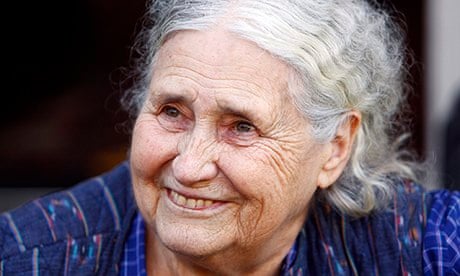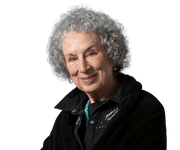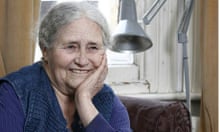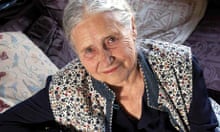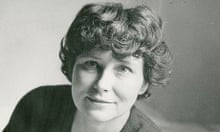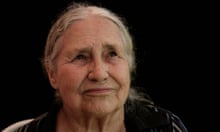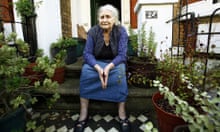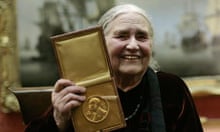Wonderful Doris Lessing has died. You never expect such rock-solid features of the literary landscape to simply vanish. It's a shock.
I first encountered Lessing on a park bench in Paris in 1963. I was a student, living on baguettes, oranges and cheese, as one did, and suffering from a stomach ailment, as one did. My pal Alison Cunningham and I had been barred from our hostel during the day, so Alison was soothing my prostrate self by reading from The Golden Notebook, which was all the rage among such as us. Who knew we were reading a book that was soon to become iconic?
Just as we were getting to a crucial moment in the life of Anna Wulf, along came a policeman to tell us that lying down on park benches was against the law, so we decamped for a bistro and another interesting washroom experience. (Footnote: this was before second-wave feminism. It was before widespread birth control. It was before mini-skirts. So Anna Wulf was a considerable eye-opener: she was doing things and thinking things that had not been much discussed at the Toronto dinner tables of our adolescence, and therefore seemed pretty daring.)
The other woman we were sneakily reading in 1963 was Simone de Beauvoir, but the childhoods of little-girl colonials such as ourselves lacked starched petticoats and were not very French. We had more in common with a remote-places-of-the-Empire parvenue such as Doris Lessing: born in Iran in 1919, growing up on a bush farm in Rhodesia (now Zimbabwe); then, after two failed marriages, running away to England with scant prospects, which was where we colonials with scant prospects ran away to then.
Some of Lessing's energy may have come from her outland origins: when the wheel spins, it's on the edges that the sparks fly. Her upbringing also gave her an insight into the viewpoints and plights of people unlike herself. And if you know you will never really fit in – that you will always be "not really English" – you have less to lose. Doris did everything with all her heart, all her soul, and all her might. She was sometimes temporarily wrong, as in the matter of Stalinist communism, but she never hedged her bets or pulled her punches. She went for broke.
If there were a Mount Rushmore of 20th-century authors, Doris Lessing would most certainly be carved upon it. Like Adrienne Rich, she was pivotal, situated at the moment when the gates of the gender disparity castle were giving way, and women were faced with increased freedoms and choices, as well as increased challenges.
She was political in the most basic sense, recognising the manifestations of power in its many forms. She was spiritual as well, exploring the limits and pitfalls that came with being human, especially after she became an adherent of Sufism. As a writer she was inventive and brave, branching out into science fiction in her Canopus In Argos series at a time when it was a dodgy thing for a "mainline" novelist to do. She was also very down-to-earth, having famously remarked "Oh Christ!" when informed in 2007 that she had won the Nobel prize. She was only the eleventh woman to do so, and never expected it; a lack of expectation that was in itself a kind of artistic freedom, for if you don't think of yourself as an august personage, you don't have to behave yourself. You can still kick up your heels and push the limits, and that was what interested Doris Lessing, always. Her celebrated experiment with a pseudonym as a demonstration of the hurdles facing unknown writers being just one example. (Her "Jane Somers" novels were reviewed as pale imitations of Doris Lessing, which must have been a little daunting for her.)
I never met Simone de Beauvoir – that would have been, in my youth, a terrifying prospect – but I did meet Doris Lessing, several times. These meetings took place in literary contexts, and she was everything a younger female writer might hope for: kind, helpful, interested, and with a special understanding of the position of writers from elsewhere within England.
As we age, we face a choice of caricatures; for women writers vis à vis younger ones, it's Cruella De Vil versus Glinda the Good. I encountered my share of Cruellas along the way, but Doris Lessing was one of the Glindas. In that respect, she was an estimable model. And she was a model also for every writer coming from the back of beyond, demonstrating – as she so signally did – that you can be a nobody from nowhere, but, with talent, courage, perseverance through hard times, and a dollop of luck, you can scale the topmost storyheights.
